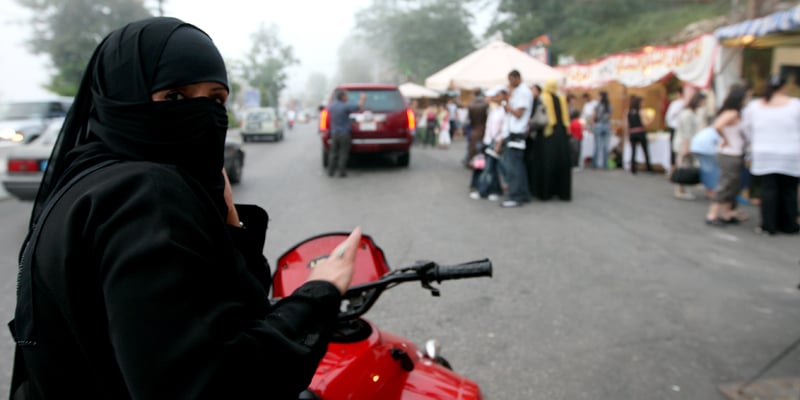They’ll also be allowed to drive trucks and motorbikes when the ban on driving licences for women is lifted next year.
In just a few short months, women in Saudi Arabia will be legally allowed to get behind the wheel—and that’s not the only thing they’ll be able to do.
When King Salman bin Abdulaziz’s historic decree comes into force in June 2018, ending a long-standing ban on women securing driving licences, female motorists will have a range of vehicles to choose from.
Read:
Could Saudi Arabia’s male guardianship law soon come to an end?
The royal families of Jordan and Saudi Arabia have met to discuss Jerusalem
Women in the kingdom will be able to drive trucks and motorbikes as well as cars, according to Sky News, with the Saudi General Directorate of Traffic telling the broadcaster the driving laws for men and women will be “equal”.
Special centres staffed by women will be launched to deal with any traffic violation or accident involving a female motorist, and there won’t be specific licence plates for vehicles driven by women.
Women with international licences would be able to drive in the kingdom without going to local driving schools, the authority also confirmed, and can apply for a Saudi licence after one year of driving in the kingdom.
The kingdom may also soon allow women to join the national traffic police, Saudi Arabia’s Director General of Traffic told Al Madina last week.
Mohammed Al Bassami revealed that a recommendation to allow women to join the force has been sent to higher authorities, the newspaper reported.
The decision will have to be approved by King Salman before it becomes official.
The latest news comes just four months before women in the kingdom will be permitted to get behind the wheel at driving schools, before the royal decree comes into full effect.
According to reports, driving schools for women will be operational from March next year, so female motorists can practice ahead of legally gaining a licence.
Women hoping to gain their first driving licence will have to attend compulsory training courses, it was confirmed earlier this year, with 30-, 90- and 120-hour courses available.
The reform came as part of Vision 2030, the kingdom’s post-oil economy plan under which the government aims to increase the percentage of women in the nation’s workforce from 23 per cent to 28 per cent by 2020.
The initiative, spearheaded by Crown Prince Mohammed bin Salman, aims to make Saudi a more modern, tourist-friendly destination.
Read:
Queen Rania stands with Palestine after Trump’s decision on Jerusalem
Saudi Arabia will lift its long-standing ban on public cinemas next year
Under the plan, women will be able to attend sports events in stadiums in three cities from next year, and female students in the kingdom are now allowed to carry their phones while on campus.
Additionally, more Saudi females have been appointed to top jobs, a royal directive allowed women to use certain government services without a male guardian’s consent, and recent approval was issued for the go-ahead of women’s gyms.
Images: Getty












